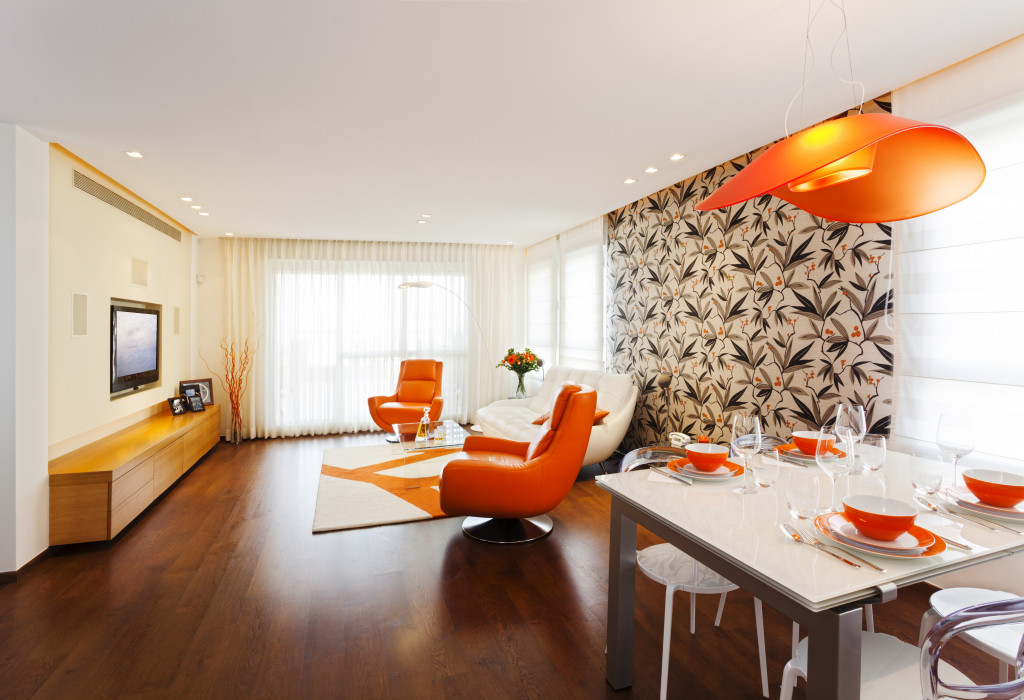As well as function and design, homeowners should also consider whether a structure promotes overall well-being.
The modern world is full of stressors. Watching the news, scrolling through social media, and being sedentary because of work or school all contribute to worsening physical and mental health of the population. Obesity is on the rise and has become an epidemic in the United States and many countries around the world. Both adults and children experience stress and other mental health conditions.
Achieving Clear Indoor Air
People nowadays spend most of their time indoors, especially during the colder months. Many activities that the public enjoys, like watching movies and television shows and reading books, all happen inside an enclosed room.
One concern whenever people spend time indoors is the quality of the air they breathe. While there are pollutants that can cause inflammation of the respiratory system outdoors, there are also dangers within a regular household.
The heating, ventilation, and air conditioning system should be safe. There are professionals who are capable of testing, adjusting, balancing a house’s or a building’s HVAC to ensure that it is up to standards.
The HVAC’s potential to spread disease-causing pathogens have been discussed heavily this year due to the pandemic. Because COVID-19 is mostly transmitted through aerosols, there is fear that air conditioning, especially in places that have inadequate ventilation, can make people sick.
Add to that, the HVAC can carry harmful gasses and allergens with the air that circulates within a structure.
Indoor air should be properly ventilated to avoid the problem of circulating potentially infectious aerosols throughout the home or building. Designers should enable the utilization of natural ventilation and operable windows in order to ensure safe indoor air for the occupants.
Create a Quiet Space
The constant noise coming from outside can disrupt the peace indoors and keep every person’s level of stress up.
Sound is not always good, especially in cities where there is constant traffic of vehicles and people. The solution is to develop a home that shuts all those unpleasant audio out for good.
Installing acoustic paneling can maintain peace within your home. It blocks the noise of shouting or partying neighbors, beeping cars, wailing emergency vehicles, and rumbling trucks. It works by absorbing the energy waves of sound, keeping the environment quieter.
Constantly being exposed to noise diminishes one’s quality of life. Aside from the loss of sleep, people who live with noise are often disrupted which prevents them from enjoying regular activities such as reading, watching television, listening to music, and so on.
There are also reports of frequent headaches among people who live in places with wind turbines. Although these machines create a low-hum, they can still be detrimental to one’s physical and mental health.

Let there be Natural Light
Light can give you a headache or cure your blues depending on its source.
Using artificial lighting, although convenient, can cause eye strain and headaches. Moreover, one recent study has linked long-term exposure to artificial lighting with osteoporosis, muscle loss, and inflammation of the immune system. Although these results have only been observed in animal models, it can happen to humans, too.
There is one thing that your fluorescent and LED cannot give you: vitamin D. Vitamin D is made from cholesterol when your skin absorbs natural sunlight.
Vitamin D plays many important roles to keep you healthy. One, it makes your cells absorb calcium which, in turn, promotes bone density to prevent osteoporosis. It is also known to boost one’s immune system which fights against illnesses.
In addition, vitamin D deficiency has been linked to an increased risk of muscle pain, type-1 diabetes, and certain cancers.
Natural lighting can also boost one’s mood. One study found that people who had windows in their offices had overall better well-being compared to those that do not. They exercised more regularly, had adequate quality sleep every night, and are much happier.
Daylight may also reduce the symptoms of depression.
Not every house is equipped to let the sunshine in. Having large windows in living spaces that people frequently use such as the family room, the bedrooms, the dining room, and the kitchen can promote physical and mental health.
If you are lucky to be building a house from the ground up, you should ask for larger windows so you can take advantage of the benefits of sunlight.
Being healthy, both physically and mentally, does not just happen because your house has the aforementioned features. You still need to exercise regularly, eat a balanced diet, sleep nine hours every night, socialize, and see a mental health professional. Living healthily and happily comes by following all these tips as much as you can.
